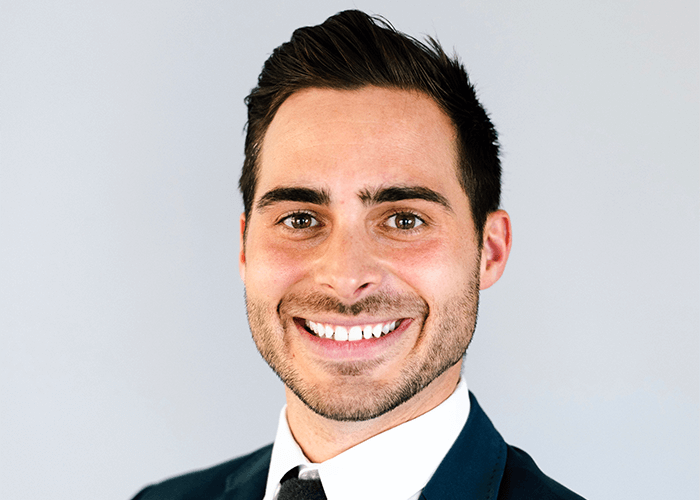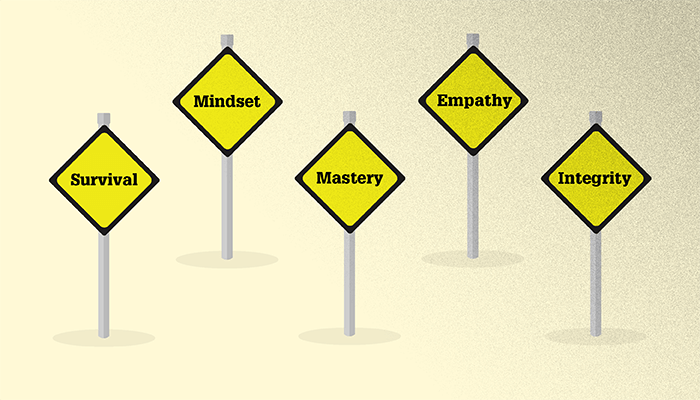
Residency is a marathon effort, transforming us from fresh, bright-eyed graduates into (baggy-eyed) clinicians and surgeons. The road is long and arduous, but has many beautiful vistas along the way. Below are a few non-traditional pearls of wisdom for life in residency and beyond.
Survival: Your support system is your lifeline
I moved to New York City in 2019 to start my residency. My wife and I had recently got married and we were moving to a new city fresh from our honeymoon. Only a few hours after arriving at our new home, we were surprised to learn that my wife was pregnant. We were thrilled and grateful, but also very nervous about the road ahead. During the course of my residency we would welcome not just one, but two children into our family.
At this juncture my partner graciously paused her own professional trajectory to support me in my career. My mother-in-law also took months off her busy schedule to take care of our family during these challenging first years. None of my professional success came without their superhuman efforts. The kids were (and are!) a challenge, but they also drive me to be my best.
Whether or not you have a partner, children, live with friends, or live alone, a solid support system is paramount. You need to have people around you that will give you strength and refresh your spirits. Nurture and foster those relationships. When you have time off, invest heavily in your loved ones, that way you will be able to rely on them for support when you need them.
Mindset: Attitude determines altitude
Inside all of us is a little voice I call “The Judge”. The Judge would have us blame others or circumstances for why things are not better in our lives (1). In residency you are bound to find an ocean of problems and few solutions. You will be tempted to blame everyone else for issues with co-workers, your hospital, or healthcare in general.
By starting small, you can make an impact. Start by taking care of yourself. From there you can begin to embrace a principle Ike Ahmed has spoken about called “extreme accountability” – taking ownership of the outcome to ALWAYS reflect on how you can improve.
Mastery: Adopt a growth mindset
Tom Brady was a backup quarterback at the University of Michigan and backup with the New England Patriots before he went on to win seven super bowls. While at Michigan, he wasn’t getting the playing time he felt he deserved. His sports psychologist, Greg Harden, helped him to change his mindset. Even though Tom was getting only three practice plays each session, Greg encouraged him to maximize each opportunity. He did, and the rest is history (2).
I entered my ophthalmology years at the height of COVID-19, and this affected our surgical numbers harder than most programs. Although I was initially disheartened, I realized we had an opportunity. We had a wet-lab and faculty support, so I looked into many different protocols on wet-lab surgical training and during my second year I worked with my program director to expand and codify our wet-lab experience. Our residents loved it, and our patients got better care from all of us as a result. I credit my (relatively) shorter learning curve with phacoemulsification to the time I spent in the wet-lab on my own and with my colleagues.
This is just the start, but the principles of dedicated practice are the model for developing mastery in any discipline. This comes from an excellent body of work from Anders Ericsson and Robert Pool, on the science of expertise (3). The bottom line is that peak performance is achievable to almost anyone who invests in dedicated practice.
Empathy: Your patient can feel how much you care
My residency is in the poorest electoral district in the country (4). Despite the social and economic challenges, my goal is to treat each patient with the same care and respect that I would with a family member. Taking time to be fully present when interacting with patients has yielded some noteworthy moments. For example, there was a situation where I was counseling a glaucoma patient; after we had discussed all of his treatment options, he told me, “Hey doctor, I just want to tell you that I know that you care. I know you will be successful. And this gift of caring about the patient is the gift that God has given you to give to the world.”
Integrity: Reputation is what others think of you. Character is what you truly are
This pearl, adopted from martial artist Bodhi Sanders, is at the core of all that you do. If you are not honest with commitments to yourself and others, your character will suffer.
During my intern year, I worked on many inpatient COVID units at our hospital in the South Bronx in New York City – one of the harshest hit by the first wave. No one who was not there at the time will fully understand what that was like.
One day I was reviewing my patients with my co-resident before rounds. I felt proud about how I was managing my patients with ICU-level care on a regular medical floor, when I casually mentioned the chest X-ray report as read by the radiologist. What he said to me stopped me cold: “Don’t be that doctor. Don’t just read reports. Read your own chest X-ray.” I took his advice.
The payoff came only weeks later. I was still on a COVID-only floor and I was called about an admission to our unit. I looked at the chest X-ray myself and it looked more like heart failure exacerbation than COVID-19, and the rapid SARS-CoV-2 test was negative. I recommended the patient be admitted to a non-COVID unit for CHF exacerbation. I like to think that besides blocking an admission that day, I helped that patient avoid potential complications. My definition of integrity is when your actions and your values are aligned. I am always working either toward or away from those values. This requires constant effort.
These are a few of my pearls. I know I will learn and revise these over time, but I am grateful to be taking not just clinical and surgical knowledge into my future practice.
Life lessons come from both inside and outside of residency. Instead of trying to compartmentalize my training experiences I have tried to apply lessons from life into my work and vice-versa. No matter where you are in your journey, I hope this is helpful as you discover your own life lessons from your residency and beyond.

References
- S Chamine, Positive Intelligence: Why only 20% of teams and individuals achieve their true potential and how you can achieve yours, Greenleaf Book Group: 2012.
- T Brady, The TB12 Method: How to achieve a lifetime of sustained peak performance, Simon and Schuster: 2017.
- A Ericsson, R Pool, Peak: Secrets from the new science of expertise, Houghton Mifflin Harcourt: 2016.
- FRAC, “Analysis of 2017 American Community Survey data” (2019). Available at: https://bit.ly/3NVHkB5.
